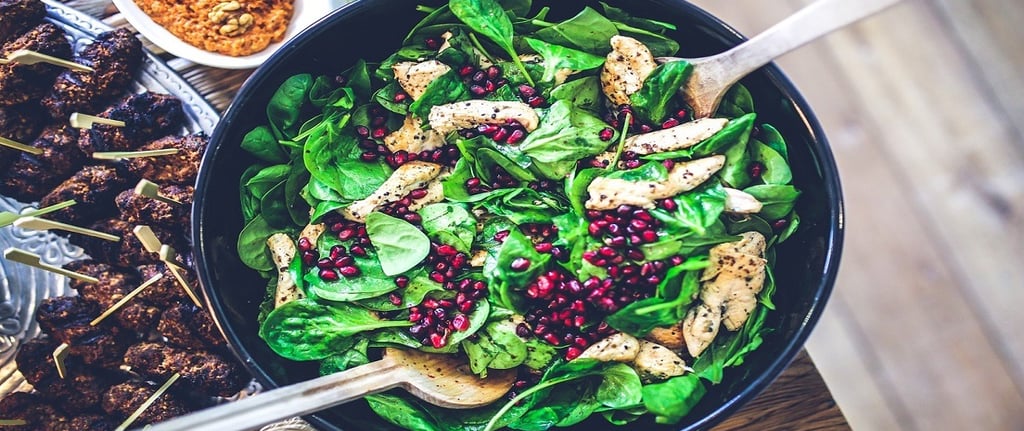Nutrients in Spinach
Spinach is a healthy leafy vegetable with various vitamins, minerals, and other nutrients. It is low in calories and can improve eye health. Read this mini blog to learn more!


Spinach belongs to the amaranth family, it originated in Persia. It contains antioxidants that provide many health benefits.
Spinach is closely related to Swiss chard, beets, and quinoa and is loaded with Vitamins A, C, Iron, and calcium. A 100 gm of spinach contains around 23 calories, making it a good choice for weight management.
Spinach contains around 92 % water, which is good for hydration. It is also a great source of insoluble fiber, which is good for gut health.
Spinach is rich in several plant compounds like nitrates, lutein, and zeaxanthin which decrease the risk of many diseases. The Glycemic Index (G.I.) of spinach is around 15 which is low and doesn’t cause blood sugar spikes.
Spinach can be consumed as salads, stews, smoothies, soups, stir-fries, or a side dish.
According to the United States Department of Agriculture (USDA), spinach contains the following macronutrients, vitamins, and minerals.
Pros of Eating Spinach
1. Spinach contains antioxidants that help neutralize harmful free radicals in the body.
2. Plant compounds lutein and zeaxanthin present in spinach protect the eyes from sunlight and prevent cataracts.
3. Compounds like MGDG and SQDG in spinach reduce cancer growth and lower the risk of prostate and breast cancer.
4. A high amount of nitrates in spinach helps regulate blood pressure and lowers the risk of heart disease.
5. Spinach contains ALA (alpha-lipoic acid), an antioxidant that can lower glucose levels and increase insulin sensitivity.
6. Nutrients like vitamin C, vitamin E, and beta carotene in spinach improve lung function.
7. Calcium and vitamin K present in spinach may improve bone health.
8. Moderate consumption of spinach may prevent constipation and improve digestion due to high water and fiber content.
9. Spinach is rich in Vitamin A and Vitamin C which can reduce acne and improve skin and hair health.
10. Spinach is high in magnesium which can improve metabolism and nerve function.
11. Spinach contains iron that helps transport oxygen in the blood, improve immunity, and maintain a healthy pregnancy.
Cons of Eating Spinach
1. Spinach is rich in calcium and oxalates, excess consumption of which may cause kidney stones.
2. People consuming blood thinners like warfarin should avoid excess spinach consumption, as it is rich in Vitamin K1 which can interfere with blood thinning medication.
3. Due to the presence of high potassium in spinach, people with kidney issues should avoid its excess consumption
4. Spinach is high in fiber and excess consumption may cause gas, bloating, and diarrhea.
5. Oxalates in spinach can hinder the absorption of iron and calcium in the body.
6. Spinach has high histamine content. People with histamine intolerance may suffer allergic symptoms like vomiting, nausea, or diarrhea.
7. People with high uric acid levels should avoid excess spinach consumption due to the high purine content which the body metabolizes into uric acid.
Interesting Facts
1. China is the largest producer of Spinach.
2. In the medieval period, green pigment from spinach was used as ink or paint.
3. During World War I, wine fortified with spinach was given to injured French soldiers to control bleeding, as vitamin K1 in spinach helps thicken the blood and aids blood clotting.
4. Spinach contains more potassium than bananas.
5. Popular misconception of Spinach's high iron content was due to a misplaced decimal point making its iron content 10 times higher than in reality. The mistake was corrected in 1937. Spinach is still considered a highly iron-rich food and inspired the cartoon character Popeye.


